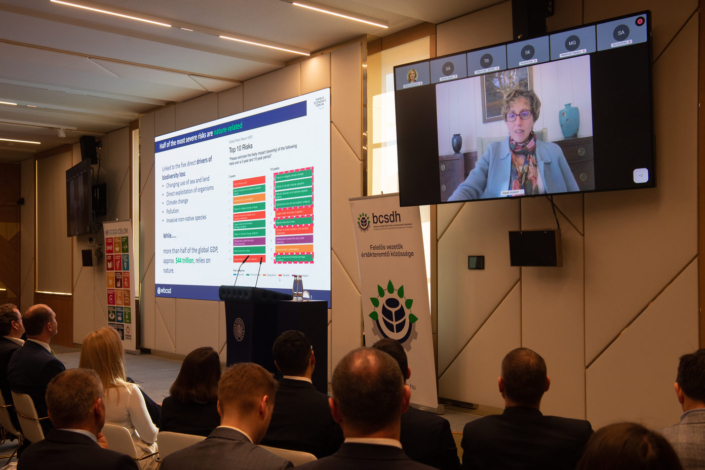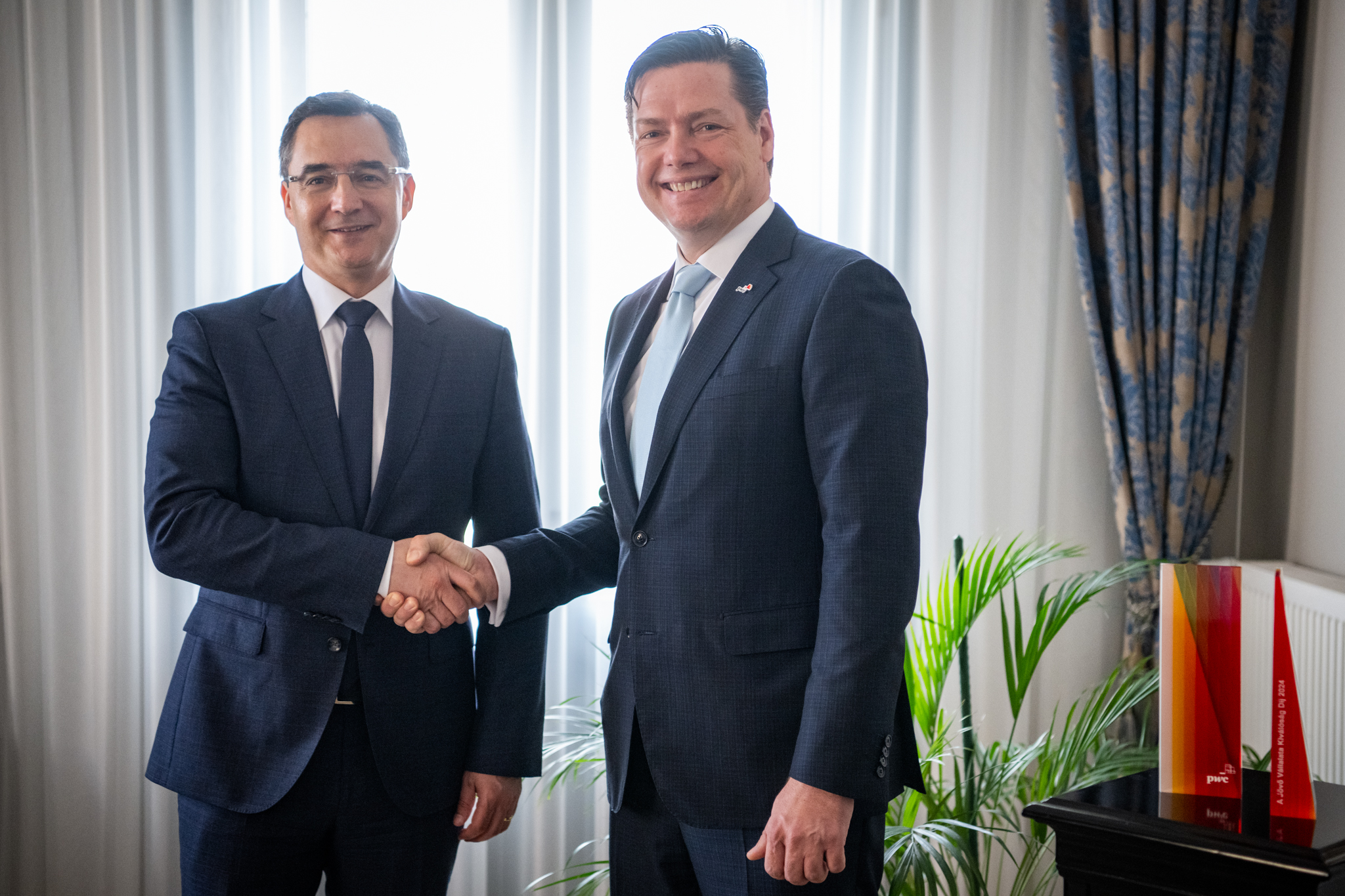'Without Nature, There Is No Business,' Holdorf Says at BCSDH Business Breakfast

Diane Holdorf addressing the BCSDH Business Breakfast and Forum.
Photo by BCSDH
The net-zero goals of governments and businesses, which cover 70% of the global economy, are unattainable without ending deforestation this decade and protecting marine life, which currently absorbs 30% of global carbon dioxide emissions, as pointed out by Diane Holdorf, executive VP of the World Business Council for Sustainable Development (WBCSD), at the BCSDH Business Breakfast and Forum on March 28.
The participants were greeted by Csaba Kandrács, VP of the Hungarian National Bank, as the host of the day.
The world’s most pressing challenges include the climate emergency, rapid biodiversity loss, dramatically growing social inequality, and the focus on assessing corporate performance from an economic perspective only. We are running out of time, and these four areas require immediate measures, action, and systemic change, alongside commitment at the highest level, BCSDH notes.
We cannot achieve net zero without business action to halt and reverse nature loss. Nature represents a third of the climate solution, and biodiversity loss is accelerating. Every business depends on nature, with opportunities to invest in nature-based solutions which drive the transformational change that we need," stated Diane Holdorf, who represented the business world at the UN-initiated COP15 on biodiversity, where an important international agreement was reached for the preservation of biodiversity.
Katalin Sipos, country manager of WWF Hungary, summarized the domestic situation and discussed possible solutions.
“Due to the incredible technological development of humanity, we have become accustomed to seeking technical solutions for almost everything. However, hi-tech is not always the wisest choice – for the sustainability transition, we need cultural and value changes, as well as low-emission, low-tech solutions. And for some environmental problems, the simplest and most ancient solution is the best: nature itself as the solution," said Katalin Sipos in her presentation, emphasizing that climate commitments cannot be made at the expense of nature, but rather the change must be genuinely systemic, and built upon nature.
Attila Chikán Jr., president of BCSDH, noted in his opening speech that “More than half of the world’s GDP depends on nature and its services. That means it affects all of us, whether we know it or not, so everyone must act. That is why we have placed this topic in the focus of our professional program for 2023. We need systemic changes instead of isolated measures, which require deep and comprehensive cooperation among the business community, scientific experts, political decision-makers, investors, developers, and consumers."
"We believe that the business sector must take a leading role in achieving this desired rapid change," he added.
Following the presentations, company executives and corporate, scientific, and civil experts discussed the current state and challenges of biodiversity, water, and climate adaptation and revealed many business best practices and solutions at a closed-door forum.
SUPPORT THE BUDAPEST BUSINESS JOURNAL
Producing journalism that is worthy of the name is a costly business. For 27 years, the publishers, editors and reporters of the Budapest Business Journal have striven to bring you business news that works, information that you can trust, that is factual, accurate and presented without fear or favor.
Newspaper organizations across the globe have struggled to find a business model that allows them to continue to excel, without compromising their ability to perform. Most recently, some have experimented with the idea of involving their most important stakeholders, their readers.
We would like to offer that same opportunity to our readers. We would like to invite you to help us deliver the quality business journalism you require. Hit our Support the BBJ button and you can choose the how much and how often you send us your contributions.









